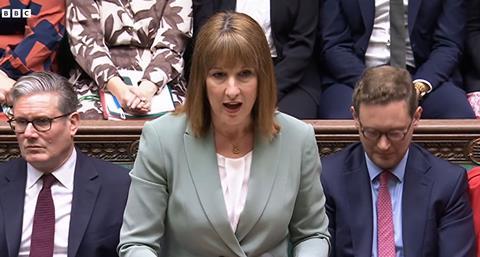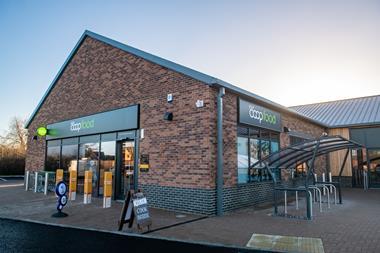
The Association of Convenience Stores (ACS) has welcomed a new report from the Government on business rates issued today (11 September), which sets out measures to better support small businesses with growth and investment.
The interim report acts on ACS’s recommendations to address the ‘cliff edges’ that exist for small business rates relief when a small business opens a second property.
Earlier this week, ACS wrote to Chancellor Rachel Reeves outlining the measures that could be taken to support local shops through the rates system - particularly those who invest in growing their business. The recommendations included:
• Utilising the full 20p reduction in the new Retail, Hospitality and Leisure multiplier
• Increasing small business rate relief thresholds in line with increases in rateable values
• Extending improvement relief from 12 months to three years and including plant and machinery in the eligible investment for improvement relief
• Removing CCTV from the rating list so that retailers don’t pay twice for making their stores more secure
While not including specific policy recommendations, the latest report states the Government’s objectives on rates as incentivising investment, supporting the high street with a fairer system and making the system fit for the 21st century.

ACS chief executive, James Lowman (left), said today: “It’s encouraging to see the Chancellor talking about reform of the business rates system to encourage growth, aligning with many of the measures that we’ve asked for to support local shops.
“Addressing the cliff edges on small business rate relief would mark a positive step forward, but with retail and hospitality relief likely coming to an end next year, there is more to do to ensure that retailers are not unnecessarily hampered by excessive rates bills.
“We continue to urge the Chancellor to use the Budget to announce a full 20p reduction in the new permanent retail, hospitality and leisure multipliers, which will go a long way to providing businesses some level of certainty at a time when they’re staring down the barrel of increases as a result of the incoming rates revaluation.”

Also in response, Helen Dickinson (right), chief executive at the British Retail Consortium (BRC), said: “The business rates system is outdated, overly complex and economically damaging. This report offers a useful blueprint of various areas to be explored further that could help the business rates system function more effectively.
“Retailers will appreciate the Government considering how Improvement Relief can be enhanced, as well as considering how the functions of the VOA can be delivered effectively by HMRC.
“But for retail businesses, the most pressing question is the how government’s plan for a permanent business rates reduction for retail, hospitality and leisure (RHL) premises will be implemented. Currently, retailers account for 5% of the economy yet pay over 20% of the total business rates bill, which is why such reforms are desperately needed. Until we get clarity on these changes, which isn’t expected until the Budget, many local investments in jobs and stores are being held back.”
Also responding to the report, the Fed’s national president, Hetal Patel, said: “Overall, the retail sector accounts for about 5% of the economy, but 20% of the Rates Bill, and it’s right that this area is subject to reform as our members face competition from online retailers based in out-of-town locations.
“While the Fed welcomes the Chancellor and Government’s focus, we urge them to fully consider the importance of the retail sector – especially small independent shops, which are often at the heart of their communities and have rightly benefited from Rates Relief in the past.
“Many of our members had higher rates bills in April because of lost Retail, Hospitality and Leisure Relief in the last Budget and will await this year’s Budget and the Business Rates Revaluation - which will occur for the first time since 2023 - with concern.
“We’re keen for the Government to introduce new permanent retail, hospitality and leisure multipliers as low as possible from 2026, and to upwardly rate Small Business Rates for the very smallest businesses in line with inflation - but remain open to continued positive engagement in this area.”
Finally Mark Tan (belw left), a tax partner at law firm Spencer West LLP, said while he welcomed the interim report, it had come not a moment too soon. “Business rates are often described as one of the most burdensome taxes for small firms, so a review is long overdue. The way relief is withdrawn at a cliff-edge; for example, when a small business opens a second shop or office can mean an overnight jump in costs that discourages expansion.

“Looking at ways to smooth this is a welcome step, but it’s not yet clear whether the reforms will genuinely remove that barrier or just make a modest tweak.
“If relief is tapered, some firms will gain, but others (such as those currently paying nothing) could start facing bills for the first time. And even if cliff-edges are fixed, high street businesses will still face heavier costs than online rivals with little physical presence.
“That said, it’s encouraging to see the Treasury take this seriously. If the review can deliver a fairer and more predictable system, it would give small businesses greater confidence to grow, and that’s exactly what the economy needs.”
The new interim report from the Government on transforming business rates is viewable here.
































No comments yet